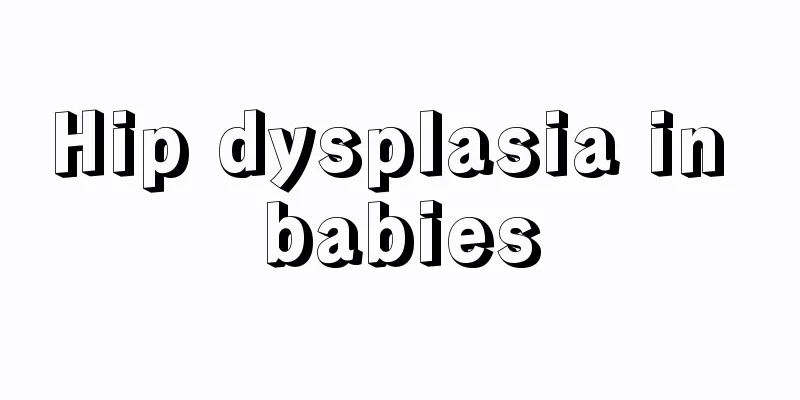Can babies eat eggs when they have a cold?

|
Because babies are young, their immunity and resistance are relatively low, and they are prone to illness, especially colds and fevers. There are many causes of colds and fevers, such as viral or bacterial infections. Whatever the infection, the baby's body is the most uncomfortable. Eggs are a food that people are familiar with and eat frequently. So can babies eat eggs when they have a cold? There is a popular saying in popular science books, newspapers, magazines, and some websites that "you can't eat eggs when you have a fever." The reason given is often that "eggs have a high protein content. Eating them when you have a fever can easily increase the body's basal metabolic rate. Instead of lowering the body temperature, it will increase the body's heat, which is not conducive to recovery from the disease." With doubts, I searched the literature, but did not find any relevant Chinese medical literature. In fact, the protein in eggs is highly utilized by the human body and can be measured by biological value. That is to say, compared with other poultry and livestock meat, eggs are easier to be utilized by the human body. Therefore, eating 1 to 2 eggs a day will not put much burden on the digestive system of patients with fever and colds. In addition, eggs contain a variety of vitamins, including various B vitamins, as well as vitamin A, vitamin D, vitamin E and vitamin A. When you have a fever, the body's metabolism speeds up and the decomposition of protein in the body accelerates. Measures such as drinking more water, urinating more, and sweating more help recovery. At the same time, the excretion of B vitamins and vitamin C is also greatly increased. Drug metabolism after taking various medicines also requires consumption of B vitamins. It can be seen that supplementing the various nutrients contained in eggs is helpful to patients when they have a fever. Fever weakens the activity of digestive enzymes, resulting in decreased function of digesting food, which may cause loss of appetite and poor appetite. The diet at this time should be light, easy to digest, moderate and nutritious. You can eat cereal foods rich in carbohydrates. Therefore, except for patients who have special contraindications and cannot eat eggs, they can eat 1 to 2 eggs a day, as well as consume appropriate amounts of milk, poultry, livestock meat, fish and shrimp, instead of classifying all people with fever as those who "cannot eat eggs when they have a fever." Therefore, mothers can rest assured to feed eggs to their babies! |
>>: Can early childhood development be suppressed?
Recommend
What does it look like when a child has water beans?
If a child develops chickenpox, more careful obse...
What are the treatments for baby rhinitis?
Children's bodies are relatively weak and the...
From whom did my daughter inherit her personality?
After they are born, all children have personalit...
What should I do if my seven-month-old baby has a fever of 38.5?
Fever is a common condition in babies. The baby&#...
What are the preventive measures for chickenpox?
Varicella is a relatively common acute infectious...
What can children eat to help them grow taller?
A child’s height has a lot to do with both innate...
What is the cause of knee pain in a 2-year-old baby?
The bones of a 2-year-old baby are not fully deve...
How to solve the problem of recurring high fever in young children?
For parents with children, their biggest concern ...
What to eat for children with sinusitis? Six dietary treatments for you to choose
Sinusitis is a recurring disease, especially duri...
Treatment for baby's dry stool with blood
What should we do if the baby has dry stools with...
How to treat children's night terrors
Night terrors in children are relatively common. ...
How long do deciduous teeth last?
For every mother, every child is unique and canno...
The baby is 16 days old and the umbilical cord has not fallen off yet
Newborn babies usually have part of the umbilical...
What should we do if children get food poisoning?
Food poisoning is a common disease that is quite ...
Treatment of synovitis in children
Synovitis is a common symptom. Synovitis occurs n...









